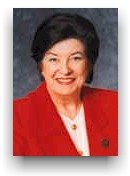Members Are Asking For More From
Additional Qualification Courses
Feedback from teachers about the quality of the courses they are paying for is troubling,
and the College will follow up on your behalf.
By Margaret Wilson

In September, I wrote about the thousands of Ontario teachers who
dedicated significant time over the summer to expanding their knowledge and skill base.
The summer institutes were a great success and I know that the sponsors are working to
hold them again next summer. Many of you had very positive responses to these focused
experiences.
Many other teachers took Additional Qualification (AQ) courses over the
summer. Unfortunately, the anecdotal comments we are receiving from members about their AQ
experiences, including the principal’s courses, are to put it mildly, mixed. Some are
done to a very high standard; others are not.
There appears to be a pervasive misunderstanding among a number of people
and institutions at the delivery end of the AQ system of the difference between a program
of professional development and a course which is expected to deliver a qualification.
It is part of the College’s mandate to ensure that these courses meet
the high expectations of both the teacher qualifications regulation and the salary system
that is tied to them. If a course is supposed to result in a "qualification," it
should provide a guarantee to students, parents and the profession that the individual
teacher has significantly increased knowledge and skill.
SPECIFIC
EXPERTISE
The general rubric for AQ courses and the principal’s course is that
each part of the course should provide
125 hours of instruction. The expectation is that the instructors have specific expertise
in the area of study and a strong theoretical base, since part of the intention is to
connect current, relevant theory with sound teaching practice.
The generic specifications for the Honour Specialist courses, for
instance, require that candidates study current research in both the content of the
subject and in new methods of delivering the curriculum. The course is meant to expand the
vision of the teacher through exposure to national and international scholarship in the
area and to deepen the capacity to use appropriate methodologies in the classroom.
NO CRAM
COURSES
When courses such as the specialist courses are crammed into a two to
three-week time frame – as too many now are – they lose any academic
credibility. The time to read widely, discuss what one has read, distill the knowledge
into the dreaded essay or apply the knowledge and skills where one’s application may
be observed does not exist in a cram course setting. And that is what too many of the
courses have become.
When the College receives complaints of teachers in an Honour Specialist
course being required to do 20 hours of community service and write 194 individual lesson
plans, or when "pub hours" are advertised as part of the hours of instruction
for a principal’s course, we must act.
VALUE
FOR YOUR MONEY
Our job is to ensure that when members pay fees for AQ courses they get an
intellectually rigorous and relevant program. We must also ensure that the program is
timetabled in such a way that it is possible to meet the high achievement levels implied
by the designations awarded on completion.
Many of you are struggling this fall to manage the delivery of the new
curriculum. Adequate resources have still not been provided but you are inventing as you
go, as teachers always have.
Even though you are busy, we would appreciate hearing your thoughts on the
AQ system. If you receive materials from the College, please respond. We are very grateful
for the high response rate to our research on the Standards of Practice and the
Professional Learning Framework.
As we put the pieces together to try to do our part to support and improve
the professional lives of College members, it is imperative that we address the quality
agenda in the AQ system. If you have time to write to us about your experiences, please
do. If you have specific suggestions for improvement, please write to me or e-mail the
College at pad@oct.ca .
In the meantime, keep up the heroic work in implementing curriculum change
and serving the children as best you can. I have the greatest admiration for your efforts.